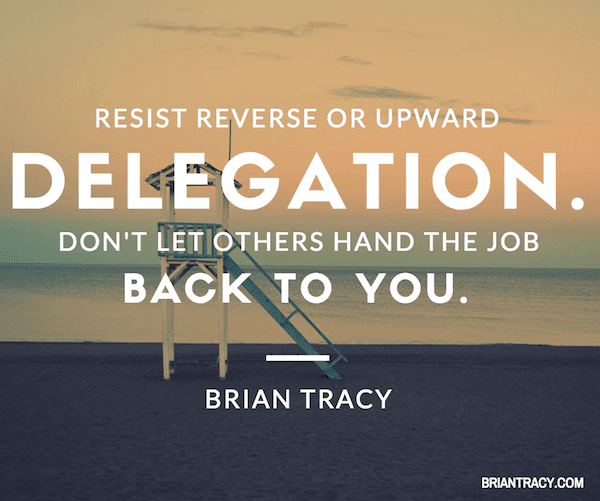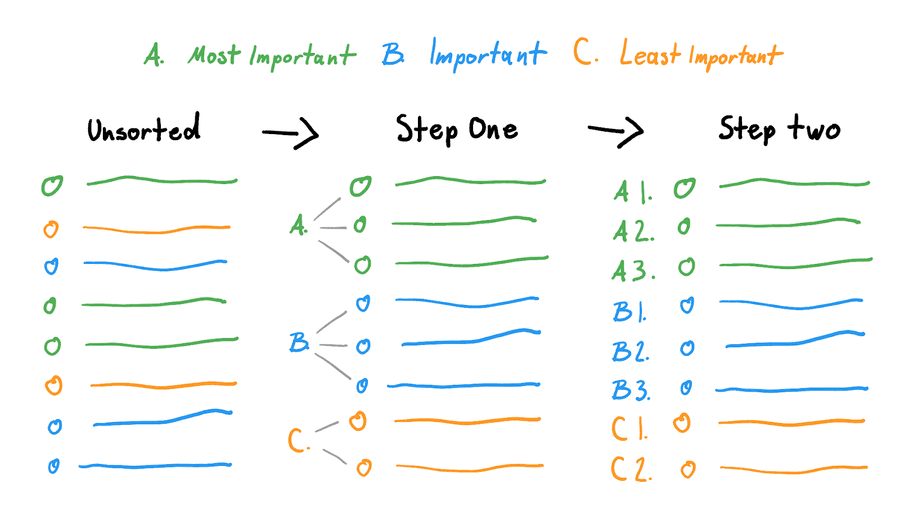The ABCDE Method
First, write down every single task you need to accomplish. Then go through and mark each task with a letter ranging from A to E.
- “A” tasks are very important. If they aren’t done, you and/or your business will experience serious consequences.
- “B” stands for important tasks. They are things you should do, but will only result in minor consequences if they are left undone.
- “C” tasks are those you’d like to accomplish, but don’t represent any negative consequences when left incomplete.
- “D” stands for delegate. These are assignments that should be completed, just not by you. Send them to someone else.
- “E” tasks should be eliminated. The more jobs you cross off your to-do list immediately, the more time you have for the most important assignments.
524
874 reads
The idea is part of this collection:
Learn more about productivity with this collection
Practicing empathy in relationships and communication
Understanding the importance of balance in personal and professional life
Defining your path in life
Related collections
Similar ideas to The ABCDE Method
The ABCDE Method Prioritization Technique
- "A” items are most important: the things that you must do.
- "B” items only have minor consequences: tasks that you should do, but they only have mild consequences.
- “C” tasks have no consequences: they have no effect at all ...
ABCDE prioritization method
- A tasks: things you must do - they're your frogs.
- B tasks: things you should do. Replying to emails or attending meetings are often should-do tasks.
- C tasks: nice-to-dos. You probably want to do them, but there are no consequences if you don't.
- ...
The ABCDE Method
This method consists of ranking your tasks into five categories.
- A – Very important, must be done at all costs.
- B – Pretty important, but the consequences aren’t as serious if it’s not completed.
- C – It would be nice to have done, but with no consequences for not doing ...
Read & Learn
20x Faster
without
deepstash
with
deepstash
with
deepstash
Personalized microlearning
—
100+ Learning Journeys
—
Access to 200,000+ ideas
—
Access to the mobile app
—
Unlimited idea saving
—
—
Unlimited history
—
—
Unlimited listening to ideas
—
—
Downloading & offline access
—
—
Supercharge your mind with one idea per day
Enter your email and spend 1 minute every day to learn something new.
I agree to receive email updates

